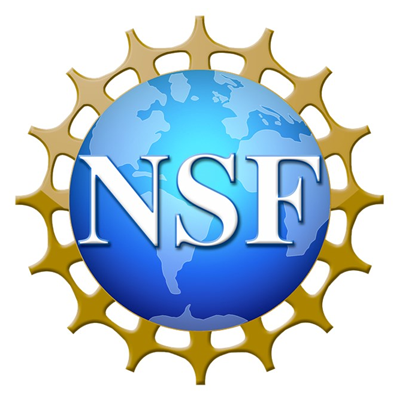Description
National Science Foundation is an independent agency of the United States government that supports fundamental research and education in all the non-medical fields of science and engineering. Its medical counterpart is the National Institutes of Health. With an annual budget of about $8.3 billion (fiscal year 2020), the NSF funds approximately 25% of all federally supported basic research conducted by the United States' colleges and universities. In some fields, such as mathematics, computer science, economics, and the social sciences, the NSF is the major source of federal backing. In 2016, there were 6.9 million scientists and engineers employed in the United States. The 2020 NSF budget, split per capita, amounts to $1200 per US scientist per year; hence, it is not a practical funding source for most scientists.
The NSF's director and deputy director are appointed by the President of the United States and confirmed by the United States Senate, whereas the 24 president-appointed members of the National Science Board (NSB) do not require Senate confirmation. The director and deputy director are responsible for administration, planning, budgeting and day-to-day operations of the foundation, while the NSB meets six times a year to establish its overall policies. The current NSF director is Sethuraman Panchanathan.
Grants and the merit review process
The NSF seeks to fulfill its mission chiefly by issuing competitive, limited-term grants in response to specific proposals from the research community and establishing cooperative agreements with research organizations. It does not operate its own laboratories, unlike other federal research agencies, notable examples being NASA and the National Institutes of Health (NIH). The NSF uses four main mechanisms to communicate funding opportunities and generate proposals: dear colleague letters, program descriptions, program announcements, and program solicitations.
The NSF receives over 50,000 such proposals each year, and funds about 10,000 of them. Those funded are typically projects that are ranked highest in a 'merit review' process, the current version of which was introduced in 1997. Reviews are carried out by ad hoc reviewers and panels of independent scientists, engineers, and educators who are experts in the relevant fields of study, and who are selected by the NSF with particular attention to avoiding conflicts of interest. For example, reviewers cannot work at the NSF itself, nor for the institution that employs the proposing researchers. All proposal evaluations are confidential: the proposing researchers may see them, but they do not see the names of the reviewers.
The first merit review criterion is 'intellectual merit', the second is that of the 'broader societal impact' of the proposed research; the latter reflects a broader global trend for funding agencies to demand evidence of research 'impact' and has been met with opposition from the scientific and policy communities since its inception in 1997. In June 2010, the National Science Board (NSB), the governing body for NSF and science advisers to both the legislative and executive branches, convened a 'Task Force on Merit Review' to determine "how well the current Merit Review criteria used by the NSF to evaluate all proposals were serving the agency." The task force reinforced its support for both criteria as appropriate for the goals and aims of the agency and published a revised version of the merit review criteria in its 2012 report, to clarify and improve the function of the criteria. However, both criteria already had been mandated for all NSF merit review procedures in the 2010 re-authorization of the America COMPETES Act. The Act also includes an emphasis on promoting potentially transformative research, a phrase which has been included in the most recent incarnation of the 'merit review' criteria.
Most NSF grants go to individuals or small groups of investigators, who carry out research at their home campuses. Other grants provide funding for mid-scale research centers, instruments, and facilities that serve researchers from many institutions. Still, others fund national-scale facilities that are shared by the research community as a whole. Examples of national facilities include the NSF's national observatories, with their giant optical and radio telescopes; its Antarctic research sites; its high-end computer facilities and ultra-high-speed network connections; the ships and submersibles used for ocean research; and its gravitational wave observatories.
In addition to researchers and research facilities, NSF grants also support science, engineering and mathematics education from pre-K through graduate school. Undergraduates can receive funding through Research Experiences for Undergraduates summer programs. Graduate students are supported through Integrative Graduate Education Research Traineeships (IGERT) and Alliance for Graduate Education and the Professoriate (AGEP) programs and through the Graduate Research Fellowships, NSF-GRF. K-12 and some community college instructors are eligible to participate in compensated Research Experiences for Teachers programs. In addition, an early career-development program (CAREER) supports teacher-scholars that most effectively integrate research and education within the mission of their organization, as a foundation for a lifetime of integrated contributions.
























